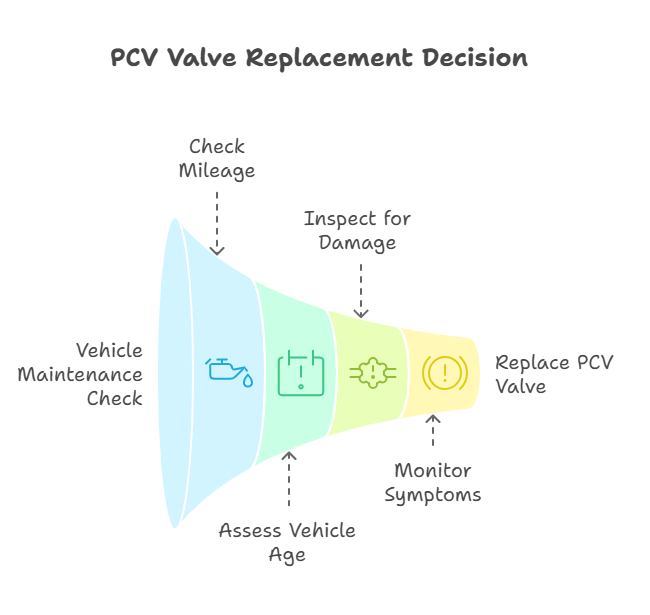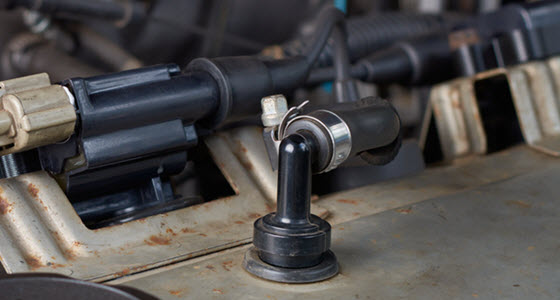When Should You Replace Your Land Rover’s PCV Valve?
Posted on | 30 Oct 2024 By Anita Gaal
Has your Land Rover’s engine performance dropped recently? If yes, then one of the possible culprits is a PCV valve failure. The positive crankcase ventilation (PCV) valve is a small yet vital emissions control gadget in your engine that can fail over time. However, the question is, when should it be replaced? Keep on reading to discover key indicators that signal when your Land Rover needs a new PCV valve and how to go about replacing it.
When Should You Change the PCV Valve?
The PCV valve itself doesn’t usually need to be replaced very often, but it’s worth monitoring as your car gets older. Here are some key factors to consider when deciding whether it’s time to replace the valve:

- Mileage: Most automakers, including Land Rover, suggest the checking or replacement of the PCV valve every 30,000 miles or more. If your vehicle is coming closer to 100,000 miles and you have experienced some of the symptoms earlier discussed, then it is advisable to have the valve checked. It should be replaced often as part of your vehicle’s maintenance to avoid bigger issues with the engine in the future.
- Age of the Vehicle: Even if your vehicle has not reached the number of miles, the age of a Land Rover can affect the performance of the PCV. The PCV valve is not meant to be a permanent component in your vehicle so it can wear out or may get blocked by oil and carbon deposits after some time. If your vehicle is older than 5-7 years old and you have never replaced the PCV valve, you might want to consider getting it done even if your car doesn’t appear to be struggling with any problems.
- Visible Signs of Damage: A simple and brief examination of the PCV valve will also help you determine if it needs replacement or not. Some of the signs that are very apparent that the valve needs replacement include; – If there are signs of crack, wear, sludge, or carbon buildup on the valve.
- Recurring Symptoms: If for example, you have dealt with some of the symptoms of a faulty PCV valve such as rough idle or poor fuel efficiency and these problems persist, then it is high time you considered replacing the valve. These problems if not attended can result in more serious engine complications.
How to Replace a PCV Valve
- Inspect the Valve: The first thing that should be done if one has a feeling that the PCV valve is bad is to check it. You can find the valve close to the engine valve cover gasket where it is connected to a hose. Take out the valve and observe whether it is blocked by some kind of debris or if it is worn out.
- Replace the Valve: If the PCV valve is clogged or damaged then they have to be replaced. This is a very simple task and it doesn’t also cost much to fix. A professional mechanic can easily change the valve to make sure that you are back on the road with a healthy engine.
- Check for Other Issues: If your PCV valve has been faulty for some time, the mechanic should check other parts of the engine for any signs of wear or for signs of leakage.
- Routine Maintenance: If you don’t want any PCV valve troubles to crop up in the future, be sure to adhere to your Land Rover’s recommended maintenance schedule. Some of the ways to maintain the PCV system include; routine oil changes and checking the engine.

Visit The Best Land Rover Repair Shop In Dallas For Your PCV Valve Solutions
At Euro Automotive, we are experts in the maintenance and repair of Land Rover automobiles for drivers in Dallas and its environment. If you suspect that your car is having PCV valve issues such as poor performance, oil leaks, and others, your vehicle should be checked and the PCV replaced to avoid causing severe problems to the car’s engine. Based in Dallas, TX, we ensure your Land Rover stays in the best condition possible and performs as it should, so if you reside nearby like Fort Worth, Garland, and Arlington, TX, feel free to come to us. Make an appointment with us today!
* White Land Rover Discovery Car image credit goes to: Artistic Operations.













